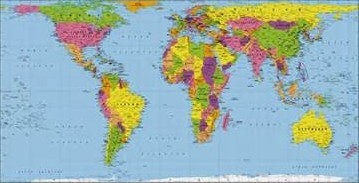Reasons for Riots
QUOFLECTIONS™
ON SPIRITUALITY AND ETHICS
“A riot is the language
of the unheard.”
Dr. Martin Luther King
Twenty police officers are injured, nearly 200 arrests made, fifteen buildings are looted or burned, and 144 vehicles are set ablaze following the funeral for Freddie Gray, the young Baltimore man whose fatal injuries occurred while in police custody.
Comedian Larry Wilmore quips, “Violent thugs run amok in the streets of Baltimore. But enough about the police department.”
Seriously, why all this violence, chaos and destruction?
Not only was Gray’s spine 80 percent severed, police also repeatedly denied him medical treatment. Gray suffered from a police ‘rough ride.’ Seat belts left unbuckled, the driver slams on the brakes so detainees are tossed like rag dolls in the van’s metal interior.
Appropriately, State’s Attorney Marilyn Mosby filed criminal charges against officers, including second-degree murder and involuntary manslaughter.
In their series, “Undue Force,” The Baltimore Sun detailed widespread police brutality. “Officers have battered dozens of residents who suffered broken bones — jaws, noses, arms, legs, ankles — head trauma, organ failure, and even death, coming during questionable arrests…. Victims are most often African-Americans.”
Indeed, the city was forced to pay $5.7 million in judgments to 102 residents since 2011 for assaults, civil rights violations and false arrests. Gag orders are routine. As one resident put it, “There’s been a bunch of Freddie Grays that the world don’t even know about.”
After the riot, MSNBC’s Joy Reid reported that more than 2000 people heard emotional testimonies of police brutality at Empowerment Temple. In one instance, “a very young girl got up and wound up in tears talking about the treatment the police have visited upon her family, her friends, her schoolmates.”
Still, the fury of Baltimore’s riot was fueled by more than police brutality.
Perhaps Georgetown Sociology Professor Michael Eric Dyson offers the best explanation. “I’ve been watching the NBA playoffs, and sometimes somebody will hit somebody in the ribs, and the referee won’t see that. But the person who retaliates—the referee sees and throws the flag. This is what we’re seeing here. What we don’t have cameras on and commentary about is the theft of capital from these urban post-industrial conditions.”
Freddie Gray lived in Sandtown-Winchester, a neighborhood with abysmal schools. The Baltimore Health Department reports one in four juveniles were arrested between 2005 and 2009. Baltimore has horrible unemployment and poverty rates, but Gray’s neighborhood is close to double these rates. Hardships persist. Casualties climb.
Maryland State Senator Catherine Pugh sees the big picture. “We need the same things that everybody else does: Job creation, economic development, sharing of the wealth—and those are the kinds of things that are not happening in this particular community…. These people feel frustrated because their neighborhoods have been devastated for decades.”
This devastation is deliberate. In 1985, conservatives devised a strategy known as ‘Starving the Beast.’ The federal government is starved of funds that help build communities and provide a safety net for the most vulnerable. For three decades, the targets include education, food stamps, Social Security, Medicaid and Medicare.
Wealth inequality is obscene. It is also a plan.
The federal government is not the Beast. Ironically, those espousing a starvation scheme include many beasts in federal and state legislatures. These beasts continually vote to cut essential programs on such a vast scale that Baltimore has still not recovered from the 1968 riots. Indeed, cities and states across the nation are starving for the funds which could relieve oppressive conditions.
One determined white woman protester displayed a screaming sign, “THE WHOLE DAMN SYSTEM IS GUILTY AS HELL!” With charges filed against six officers, this systemic failure may finally be changing.
Dr. King’s reflection on his riotous era is surely pertinent for our own: “History will have to record that the greatest tragedy of this period of social transition was not the strident clamor of the bad people, but the appalling silence of the good people.”
©2015 Harry Rix. All rights reserved.
Related Articles
Appreciating the Prophet of Love
Seeking Racial Justice is both Personal and Political
The Legacy of Slavery in Rhode Island
Transforming Our Racist Culture
Does Racial Inequality Persist?

